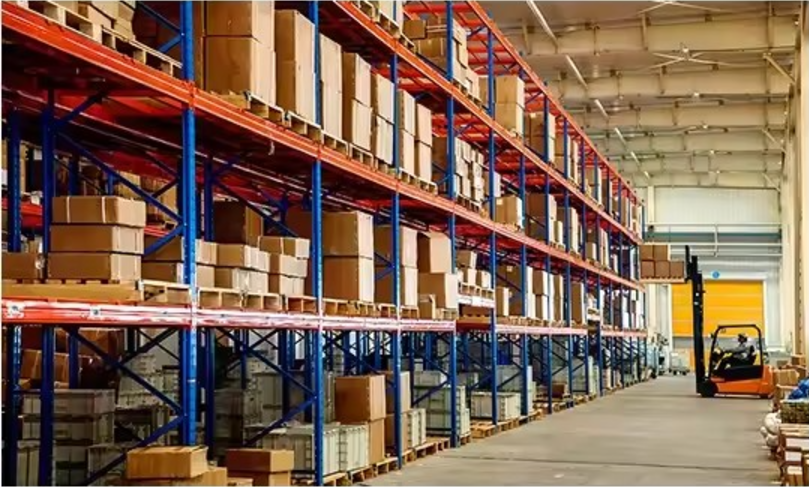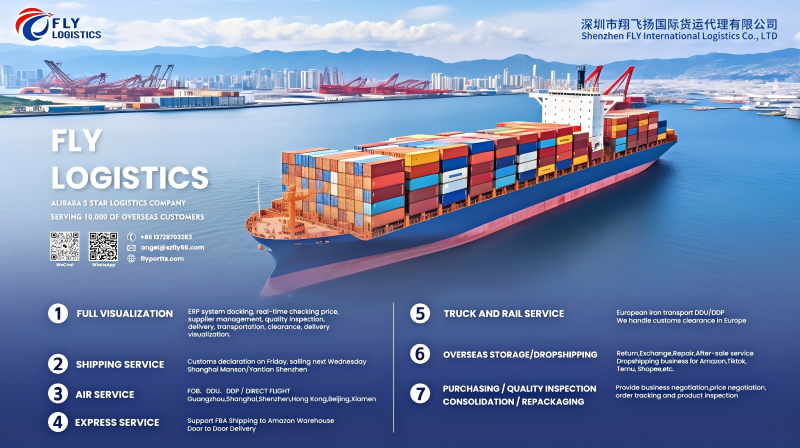Behind every smooth international delivery, behind every Amazon FBA shipment that lands right on time, behind every cost-efficient route from a Shenzhen warehouse to a Los Angeles shelf—there’s a silent force at work.
It’s not the airplane.
It’s not the customs form.
It’s not the container ship.
It’s the first mile.
Where the Journey Begins
While many businesses obsess over last-mile delivery, package tracking apps, and carrier selection, the smartest exporters and importers know that the first mile often determines everything that comes after.
If your goods don’t leave the supplier in good condition, if documentation isn’t prepared right at the origin, if consolidation is done poorly, the downstream shipping process becomes a game of damage control.
In other words, “first-mile logistics is a crucial link in the chain”—but one that is too often underestimated.
That’s where Shenzhen Fly International Logistics Co., Ltd. comes in—not as a shipping company that simply connects points on a map, but as a strategic architect of how international trade works from Day One.
Not Just Movement — Meaningful Motion
Since 2014, Fly Logistics has built something rare in the fast-changing world of freight forwarding: a system that puts the first mile front and center.
Rather than treat pickup and preparation as a “routine task,” they’ve elevated it into a core logistics strategy.
Need someone to pick up goods from five different suppliers and consolidate into a single FCL container?
Fly has a route for that.
Need to ship 200 SKUs to Amazon’s FBA warehouses with labeling, inspection, and video proof?
Fly has a system for that.
Need your items warehoused temporarily, relabeled, insured, or partially returned after customs?
They’ve thought of that too.
They don’t just move boxes. They manage the invisible friction that happens between product readiness and port clearance—and that makes all the difference.
When “Logistics” Means More Than Shipping
Fly Logistics is not defined by the vehicles it uses, though they cover everything from air and sea to rail and express couriers.
They are defined by how they integrate services.
Think:
-
Local truck pickup from Chinese factories
-
Pre-shipment inspection & video confirmation
-
Strategic consolidation to cut shipping costs
-
Product labeling and FBA compliance
-
Customs declaration prep
-
Insurance, returns, and repair handling
-
Last-mile linkage with global platforms (Amazon, Walmart, Shopify)
That’s not just shipping. That’s orchestration.
And in today’s increasingly uncertain supply chain climate, orchestration is what saves money, time, and reputation.
Why the First Mile is Today’s Competitive Advantage
Let’s be honest: there are hundreds of shipping agents across China.
But very few treat first-mile precision as a competitive advantage.
Here’s how Fly makes that their superpower:
● Speed Isn’t Rushed — It’s Engineered
Because they know the local terrain, Fly doesn’t just “hurry” pickups—they optimize routes, batch cargo, and pre-schedule customs to ensure departures are predictable, not reactive.
● Compliance Isn’t an Afterthought
With a zero customs seizure rate, Fly treats every first-mile export as a compliance test. Documentation, product HS codes, labeling—all double-checked before the truck even leaves the warehouse.
● Cost Control Begins Before Transit
By intelligently consolidating partial shipments and choosing the right mode of transport at the right time, Fly helps reduce unnecessary air or express charges.
Beyond the First Mile: An End-to-End Ecosystem
Of course, Fly’s job doesn’t stop once the first truck rolls away.
They also manage:
-
Air freight to global destinations
-
Sea freight (FCL and LCL) across continents
-
Rail transport linking China to Europe
-
Express & air parcel options (DHL, FedEx, UPS, TNT)
-
Overseas warehousing and drop-shipping
-
Returns, repair, and after-sales service
But every successful shipment they deliver is built on the fact that the first link in the chain was rock solid.
Who Relies on First-Mile Precision?
The beauty of Fly’s model is that it’s flexible enough to support:
-
Social commerce sellers (TikTok, Temu, Shopify)
-
B2B importers and wholesalers
-
Amazon FBA businesses
-
Retail chain buyers
-
Sourcing agents
-
Large supermarkets (Walmart, Costco, Tesco)
From pet toys to power tools, from small MOQs to container loads, Fly builds logistics strategies around business models, not just cargo.
Less Noise, More Clarity
Logistics is often described with complexity—zones, codes, fees, deadlines.
But Fly’s approach cuts through the noise:
-
One point of contact for pickup to delivery
-
Real-time updates through multilingual account managers
-
Transparent fees, no hidden charges
-
Flexible solutions tailored for different industries and seasons
That’s why many of their clients—especially in Europe and North America—don’t just see them as a shipping partner, but as a logistics co-pilot.
A Message from the Ground
In their recent YouTube presentation, Fly Logistics pulled back the curtain on how they operate behind the scenes.
From packing lines and loading bays to client communications and customs prep—it’s not just about movement, it’s about mindset.
To ship smart, you must ship with intention.
That begins at the first mile.
Final Thoughts: Great Logistics Start at the Source
Whether you’re an Amazon seller launching your first product, a sourcing manager juggling three suppliers, or a retailer planning peak season stock flow, you cannot afford to ignore the first mile.
The smartest logistics plans aren’t reactive—they’re preemptive, and Fly International Logistics understands this better than anyone.
So next time someone asks, “How do you keep your supply chain so steady?”,
Tell them: “I took care of the first mile.”
And Fly did the rest.





